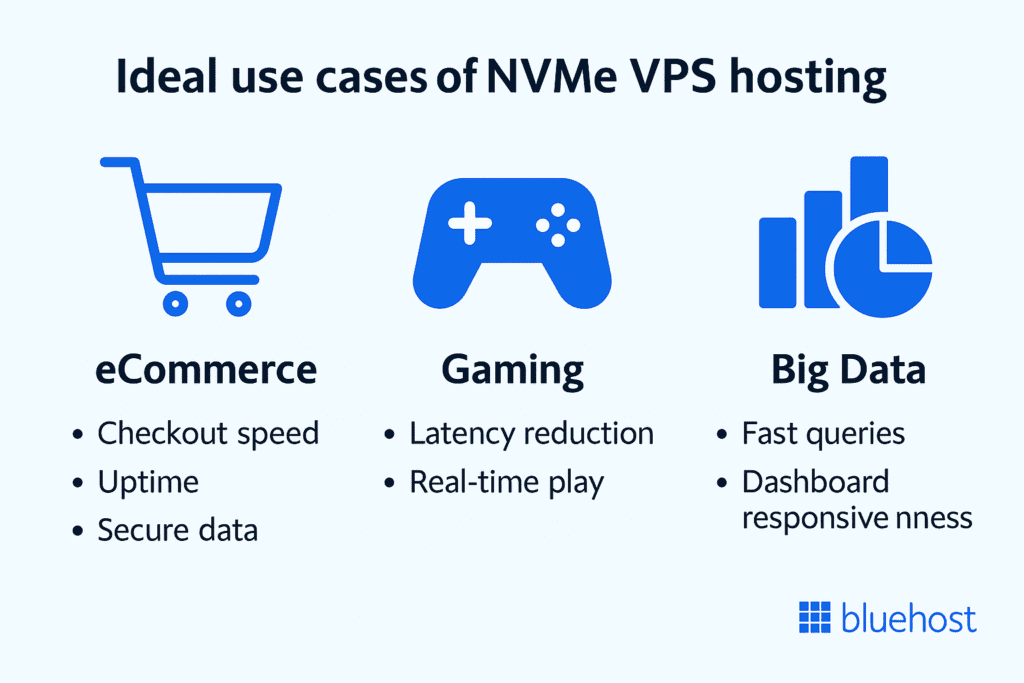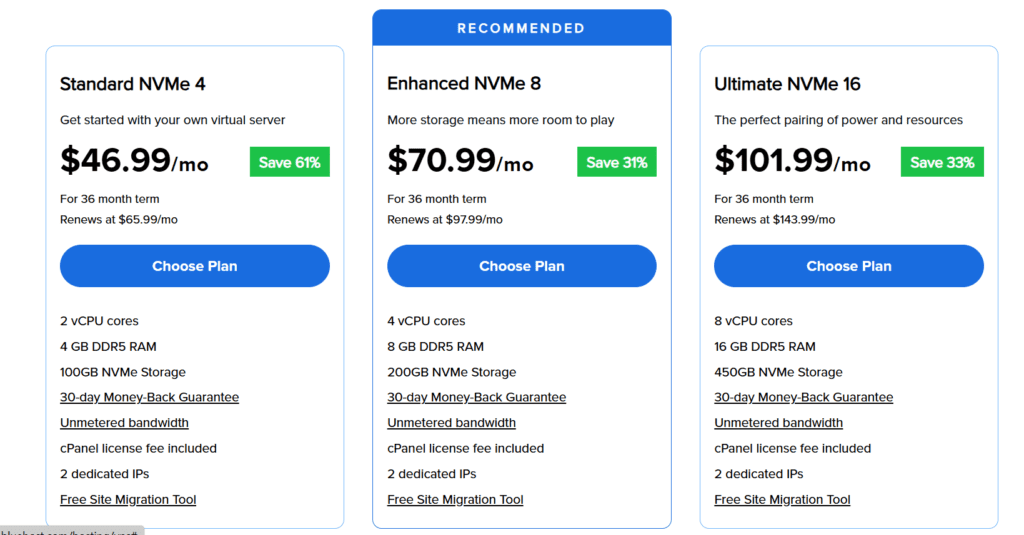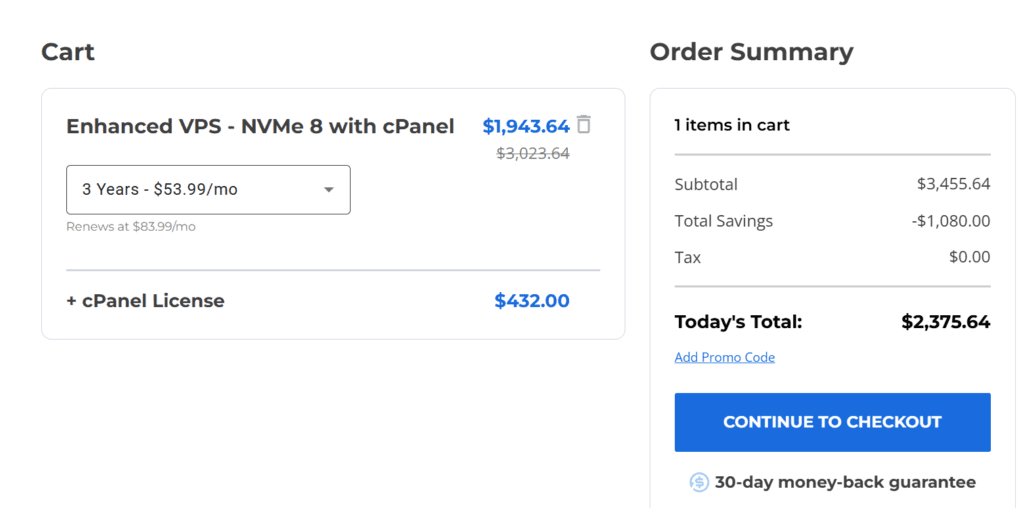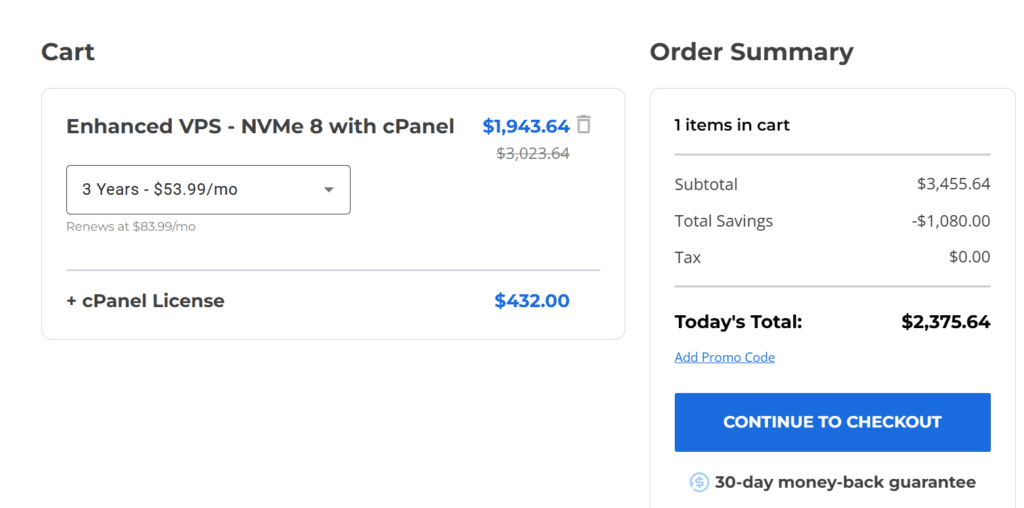Key highlights
- Know how NVMe VPS hosting uses faster storage technology to dramatically improve load times and server response for busy websites.
- Learn why high-traffic websites perform better with NVMe drives compared to traditional SSD or HDD storage setups.
- Explore how virtual private servers with NVMe offer better IOPS, lower latency and higher throughput during peak user activity.
- Understand how NVMe VPS hosting supports ecommerce stores, content-heavy platforms and apps with high read/write demands.
- Uncover the benefits of combining NVMe speed with VPS isolation for maximum performance, reliability and scalability.
Is your current hosting setup slowing you down? If pages load slowly or crash during traffic spikes, you need NVMe VPS hosting and the right services.
NVMe VPS hosting combines next-generation NVMe storage with dedicated resources. It provides the speed, reliability and control essential for high-traffic websites. Whether you run an online store, host multiple sites or manage a large app, NVMe VPS helps you scale with ease.
This guide explains how NVMe VPS differs from SSD and HDD hosting. You’ll also see how Bluehost supports site owners and developers with high-performance VPS plans and unmetered bandwidth.
What is NVMe VPS hosting?
NVMe VPS hosting is a powerful virtual server that runs on NVMe storage. NVMe stands for Non-Volatile Memory Express and enables faster data access and high performance. It’s ideal for websites, apps and platforms that need speed and scalability.
A VPS server offers dedicated resources like CPU, RAM and storage capacity, unlike shared hosting or basic web environments, making it an affordable alternative. NVMe drives improve read/write speeds, lower latency and handle high-density traffic more efficiently. This setup gives businesses, developers and creators more consistent performance and control.
NVMe VPS hosting works well for WordPress sites, developer environments, eCommerce platforms and other web hosting needs. It reduces load times and keeps performance stable, even during peak traffic.
Also read: Experience Higher Speed with NVMe VPS and Dedicated Hosting
How does NVMe VPS hosting differ from SSD and HDD?
Hosting plans may use HDD, SSD or NVMe storage. Each offers a different level of performance.
HDD (Hard Disk Drive):
Uses spinning disks and is the oldest storage method. It’s cheap with large capacity but has the slowest data speeds.
SSD (Solid State Drive):
Uses flash memory and is much faster than HDD. It has no moving parts but is limited by SATA connections.
NVMe (Non-Volatile Memory Express):
The newest and fastest option. NVMe connects through PCIe lanes and delivers ultra-fast VPS performance. It supports higher IOPS, lower latency and better data handling for traffic-heavy websites, providing significant power to your hosting.
| Feature | HDD | SSD | NVMe VPS hosting |
| Interface | SATA | SATA | PCIe |
| Average read Speed | ~100 MB/s | ~550 MB/s | 2,500–7,000+ MB/s |
| Latency | High | Medium | Low |
| IOPS (Speed Handling) | ~75–100 | ~5,000–10,000 | 500,000+ |
| Best for | File storage, backups | Blogs, small sites | High-traffic hosting, real-time data |
What are the top benefits of NVMe VPS hosting?
NVMe SSD storage gives your VPS server a big boost. It improves performance, stability and scalability. Here’s how:
- Faster access speeds help your pages, images and apps load in near real time
- Lower latency improves site responsiveness, especially for real-time platforms
- Better throughput lets your VPS server process more data without delays
- Scalable resources ensure smooth performance as your business grows
- Ideal for virtual machines running high-demand apps or dev environments
- Enhanced support for large file handling, API activity and concurrent users
- Improved uptime and reliability, with better handling of sensitive information
NVMe VPS hosting is the best alternative to a dedicated server. You get full control, great performance and advanced security, without high costs. It’s fast, efficient and built for serious site owners or developers, making it a perfect solution.
Before we explore who needs NVMe VPS hosting, let’s break down why speed matters. Speed isn’t a luxury; It’s a necessity for performance driven websites.
Why is speed critical for high-performance VPS hosting?
Site speed directly affects bounce rate, conversions and user satisfaction.
For bandwidth-heavy websites, high IOPS, fast throughput and low latency are key to stable performance. That’s why NVMe VPS hosting with dedicated resources works better than traditional web hosting, providing a reliable solution for high-traffic sites.
Running a WordPress site, syncing databases or supporting live users? A fast virtual private server keeps your site quick, even during high-traffic spikes.
What is IOPS and how does data throughput affect site speed?
Website performance depends on how quickly your server can handle user requests and deliver content. Two key metrics that influence this are IOPS and data throughput.
These technical factors directly impact how fast your site loads, especially during high-traffic events, media delivery or large data transfers.
Understanding both will help you choose the right VPS setup for speed and scalability.
Definition of IOPS
IOPS stands for input/output operations per second. It measures how many read and write actions your VPS server can handle at once. High IOPS means more responsiveness. This matters when you’re dealing with multiple users, background processes or media-heavy content.
Definition of throughput
Data throughput measures how much information your VPS server can transfer in a given time. With NVMe storage, throughput is drastically higher than with SSD or HDD. This ensures that your business-critical applications, checkout pages and APIs respond fast, even at scale.
Example:
A WooCommerce store on NVMe VPS server with unmetered bandwidth can handle thousands of simultaneous requests. It doesn’t slow down image delivery, inventory sync or payment confirmation, even during traffic spikes.
How do latency and queue depth impact real-time performance?
Latency is the delay before your data request starts processing. Low latency means user can interact with your server faster. NVMe drives reduce this delay by skipping older SATA bottlenecks. They connect directly through PCIe lanes for faster data delivery.
Queue depth refers to how many simultaneous requests your NVMe drives can process without delays. With higher queue depth, you can manage large-scale operations without drops in speed or reliability.
In real-world use, this leads to:
- Faster load times for media files and dynamic pages
- Lower bounce rates for bandwidth-heavy platforms
- More efficient virtual machines and development workflows
- Seamless integration with caching, backups and CDNs
At Bluehost, we build our NVMe VPS hosting for high-demand use cases and offer a range of services to support it. It supports shopping platform surges and developer server environments. Your site stays fast, no matter the traffic load.
Before investing in a faster hosting plan, you need to know if NVMe VPS hosting fits your use case. Let’s explore who benefits most from this ultra-fast Virtual server option.
Who should choose NVMe VPS hosting?
NVMe VPS hosting isn’t just for tech-heavy startups or enterprise platforms. It’s a reliable solution for any business that needs speed, stability and dedicated server without the cost of a full dedicated server.

If you’re working with large datasets, speed matters. Serving thousands of users or running performance-heavy apps also needs reliable power. Upgrading to a virtual private server with NVMe storage gives you freedom and a serious advantage.
Which types of websites need NVMe VPS hosting?
Here’s where NVMe VPS hosting makes a big impact:
- eCommerce websites: Fast checkouts, image-heavy product pages and seasonal traffic surges require high performance and full root access
- Gaming platforms and game servers: Real-time responsiveness, session handling and low latency are critical for multiplayer environments
- Big data and analytics tools: Platforms managing live dashboards, data feeds or business intelligence tools demand high availability and storage efficiency
- Media-heavy websites: Photographers, YouTubers and digital creators benefit from fast storage, stable uptime and seamless file delivery
- Developers managing multiple websites: Sandboxed environments, isolated projects and custom stacks require flexible configuration and resource scaling
These businesses rely on virtual machines, custom web applications and dynamic content, all of which benefit from NVMe’s high IOPS and throughput.
How does NVMe VPS compare to shared and standard VPS hosting?
If you’re still using shared hosting, you’re likely dealing with slowdowns during traffic spikes or plugin conflicts. Here’s how the three options stack up:
| Hosting type | Performance | Control | Scalability | Best for |
| Shared Hosting | Low (limited by other users) | Minimal (no root access) | Low (fixed limits) | Basic blogs, static sites |
| Virtual Server (Standard VPS) | Medium (dedicated resources) | Full control | Moderate | Growing businesses, developers |
| NVMe VPS Hosting | High (fastest read/write speeds) | Full root access | High (on-demand scaling) | High-traffic sites, eCommerce, media-heavy platforms |
With NVMe VPS hosting, you get a high-performance environment. It’s backed by NVMe drives and advanced security tools. You also gain the ability to manage growth without downtime.
Now you know who benefits most from NVMe VPS hosting. Let’s explore what you actually get when you choose a hosting provider. Here’s what we offer inside our Bluehost NVMe VPS hosting plans.
What’s included in Bluehost NVMe VPS hosting plans?
Our NVMe VPS hosting is built for developers, creators and growing businesses. It delivers fast storage, high availability and dedicated virtual server performance. You get all the benefits without the complexity of managing a full physical server.
How does Bluehost enhance performance with SSD, caching and NVMe drives?
All of our VPS plans include SSD upgrades, but we go further with NVMe storage, which delivers faster IOPS and lower latency. These NVMe drives make your website load faster, reduce bounce rates and improve real-time responsiveness across mobile and desktop.
With enhanced caching, your site stores key content in memory, reducing strain on the VPS server and delivering smoother performance for repeat visitors or high-traffic bursts.
Here is how we boost performance across every Bluehost NVMe VPS plan:
- NVMe storage with PCIe-based access speeds
Get up to 6x faster read/write speeds compared to traditional SSDs, enabling quicker content delivery and lower latency.
- Dynamic caching to reduce TTFB and load time
Store critical data in memory for faster retrieval, minimizing server load during spikes in traffic and improving Time to First Byte.
- Boosted storage efficiency for large files and media-heavy websites
Our architecture supports large-scale media without compromising load speed or backend responsiveness.
- Stable server performance under high read/write demand
Run databases or dynamic applications? our systems handle concurrent operations with minimal lag.
This combination of control, security and resource scalability is what makes our VPS plans ideal for performance-driven websites.
Also read: How to Get DDoS Protected VPS Hosting?
Why is Bluehost the best choice for NVMe VPS hosting?
Unlike providers who only focus on specs, we at Bluehost combine high-performance infrastructure with user-friendly tools, enhanced support and 24/7 customer service.
Our VPS plans offer:
Unmetered bandwidth: High-traffic websites benefit from faster data access and no bandwidth limits, ensuring smooth performance during peak loads.
Staging environments: Users gain full control to configure their VPS and test changes safely with staging tools.
Dedicated IP: Improves SEO rankings and builds customer trust through secure transactions and a verified site identity.
Third-party integration: Tools like WonderSuite, Yoast SEO and SiteLock offer seamless WordPress setup, optimization, and protection.
Transparent pricing: Competitive plans with no hidden fees and a full refund policy provide confidence and clarity at checkout.
Full root access: Users have complete control over their VPS environment, allowing for custom configurations and installations.
Scalability: Our VPS plans are easily scalable, enabling users to upgrade resources as their website grows.
Enhanced security: Features like DDoS protection and free SSL certificates are included to safeguard websites against potential threats.
User-friendly management: The inclusion of cPanel simplifies server management, making it accessible even for users with limited technical expertise.
Still deciding? Keep in mind that the true value of NVMe VPS hosting isn’t just speed, it’s the complete control and reliability you gain.
Is NVMe VPS hosting worth it in the long run?
Yes, NVMe VPS hosting is worth the investment if you need high performance, full control and scalable infrastructure that keeps pace with your growing website or application. It delivers significant advantages in speed, uptime and data handling at competitive prices, especially for high-traffic hosting or media-heavy platforms.
Pros and cons of NVMe VPS hosting
| Sr. no | Pros | Cons |
| 1 | Extremely fast read/write speeds (NVMe SSD) | Higher starting cost than shared hosting |
| 2 | Better performance for large sites and apps | May require basic server management knowledge |
| 3 | Full root access and OS-level customization | Not needed for simple static websites |
| 4 | Ideal for eCommerce, gaming and developer workflows | VPS plans may include fair usage limits |
| 5 | Scalable with unmetered bandwidth and dedicated resources | Not always beginner-friendly without help |
Is NVMe VPS hosting worth the cost for high performance?
While NVMe VPS plans may cost more upfront than shared hosting, the long-term ROI is clear. You get faster load times, reduced bounce rates and better SEO performance—especially when your site is image-heavy, traffic-intensive or handling sensitive information.
What you gain:
- No bottlenecks from other users (unlike shared hosting)
- More power to run custom apps or WordPress with advanced plugins
- Reliable speed during traffic spikes—without paying extra for overages
Whether you’re managing a business-critical application or an online storefront, the value of NVMe VPS hosting pays off in performance and customer trust.
What makes NVMe VPS scalable and future-proof?
As your business grows, your hosting demands change as well. You can scale NVMe VPS hosting with NVMe SSD as your business grows, adding more CPU, RAM and bandwidth whenever you need it.
Here’s why it’s a smart long-term investment:
- Easy resource upgrades with no downtime
- Greater uptime and server reliability for customer-facing apps
- Better infrastructure for WordPress scalability, SaaS platforms and portfolio sites
- Smooth performance even under high density workloads or multi-site environments
For developers, agencies and fast-scaling brands, NVMe VPS hosting isn’t just a nice-to-have, it’s the most efficient way to support growth without limits.
How to set up Bluehost NVMe VPS hosting in just a few steps?
Launching your new virtual private server doesn’t require deep technical knowledge. We at Bluehost make the setup process fast, secure and flexible.
Whether you’re launching a new site or undergoing hosting migration from shared or SSD-based hosting, we simplify the entire setup process.
What are the steps to configure your VPS?
You can set up your NVMe VPS hosting in just a few clicks. Here’s how:
- Visit our VPS hosting plans page
Choose a plan based on your resource needs, including CPU, RAM and storage capacity.

Note: Visit the official Bluehost VPS Hosting page to see current pricing and promotions.
- Register a free domain
Secure your brand with a free domain for the first year, perfect for startups, agencies and ecommerce sites.

- Buy your hosting
Complete the payment and move forward with setting up your operating system and server tools.

- Deploy your website
Install WordPress, launch your storefront or migrate your site files. You’re ready to scale from day one.
How do you migrate from shared or SSD hosting?
Already using shared or SSD-based web hosting? Upgrading to NVMe VPS is simple and seamless.
- We offer free migration for eligible accounts
- Your files, databases and SSL certificates remain intact
- No downtime during the transition
- You’ll gain root access, enhanced control and more server resources
Whether you’re managing a WooCommerce store or a client portfolio, the move to NVMe VPS hosting is a smart upgrade. It gives you better performance, stronger security and more server resources. You also get a scalable foundation that supports future growth.
Upgrade to Bluehost NVMe VPS Hosting. Get unmetered bandwidth, lightning-fast NVMe storage and 24/7 expert support, built for high-traffic websites.
Final thoughts
Choosing NVMe VPS hosting with cPanel is one of the smartest upgrades you can make if your site demands speed, security and scalability. Whether you’re running an online store, managing multiple WordPress sites or building a data-heavy app, NVMe drives and unmetered bandwidth give you the flexibility to grow without limits.
Bluehost offers more than just server space. Our virtual private servers, as well as virtual machines, include full root access, built-in DDoS protection and free domain registration, plus a dedicated support team ready to help you every step of the way.
If you’re ready to improve load times, reduce bounce rates and future-proof your site, it’s time to make the switch.
Start your high-traffic website with Bluehost NVMe VPS Hosting today.
FAQs
Yes. NVMe is significantly faster than traditional SSD for VPS hosting, offering higher IOPS, lower latency and better throughput for high-traffic websites.
Yes. NVMe VPS hosting speeds up WordPress site performance by reducing page load time, improving database queries and supporting plugin-heavy builds.
Upgrading to NVMe VPS at Bluehost is simple. You can scale your plan through the control panel with minimal downtime and real-time resource allocation.




Write A Comment